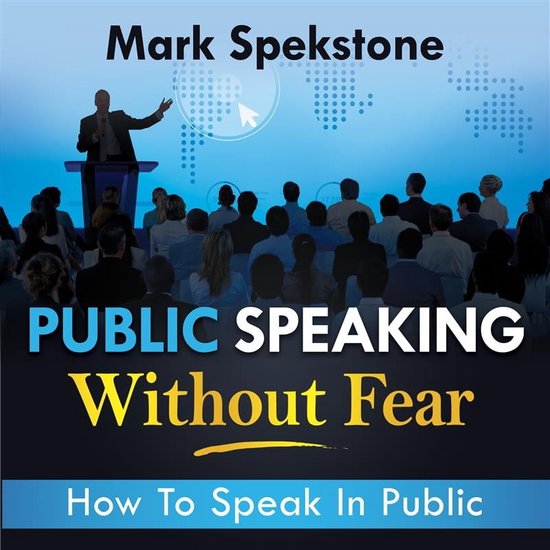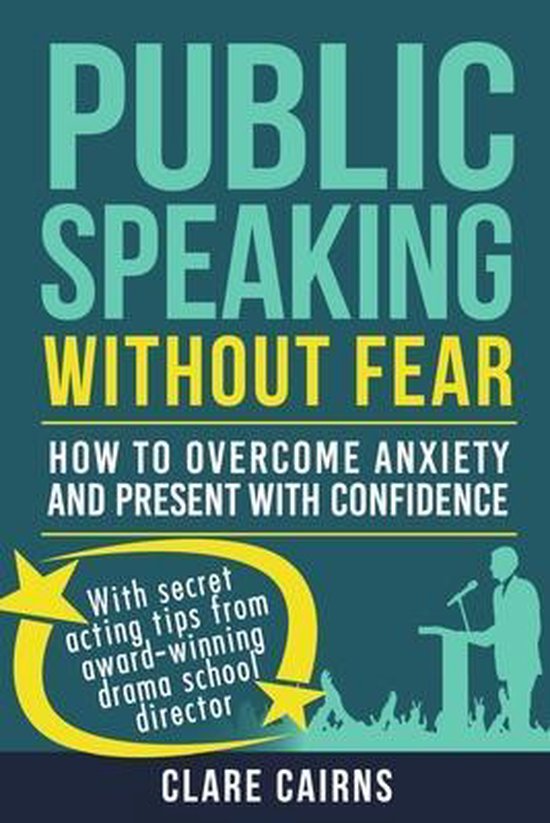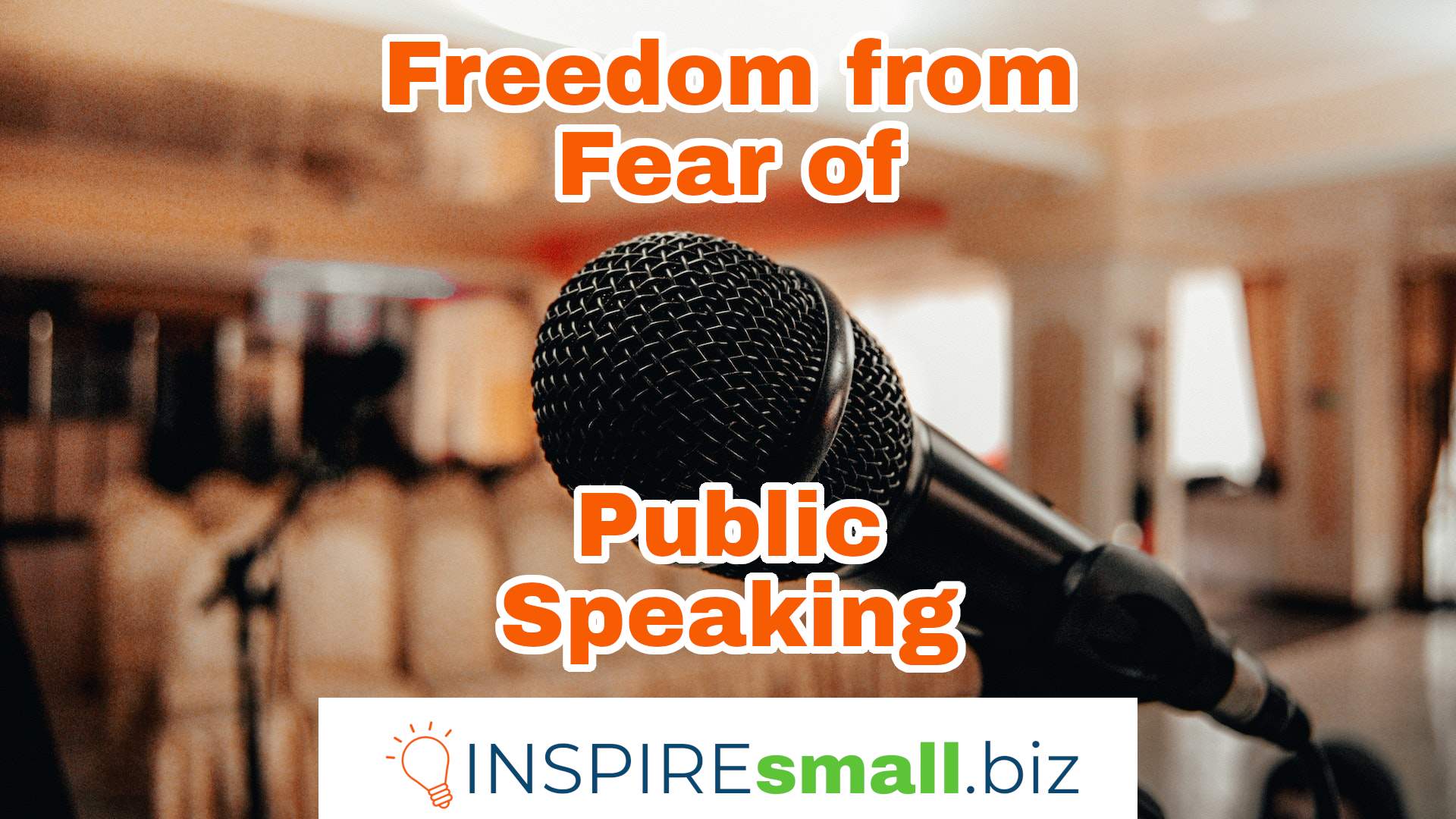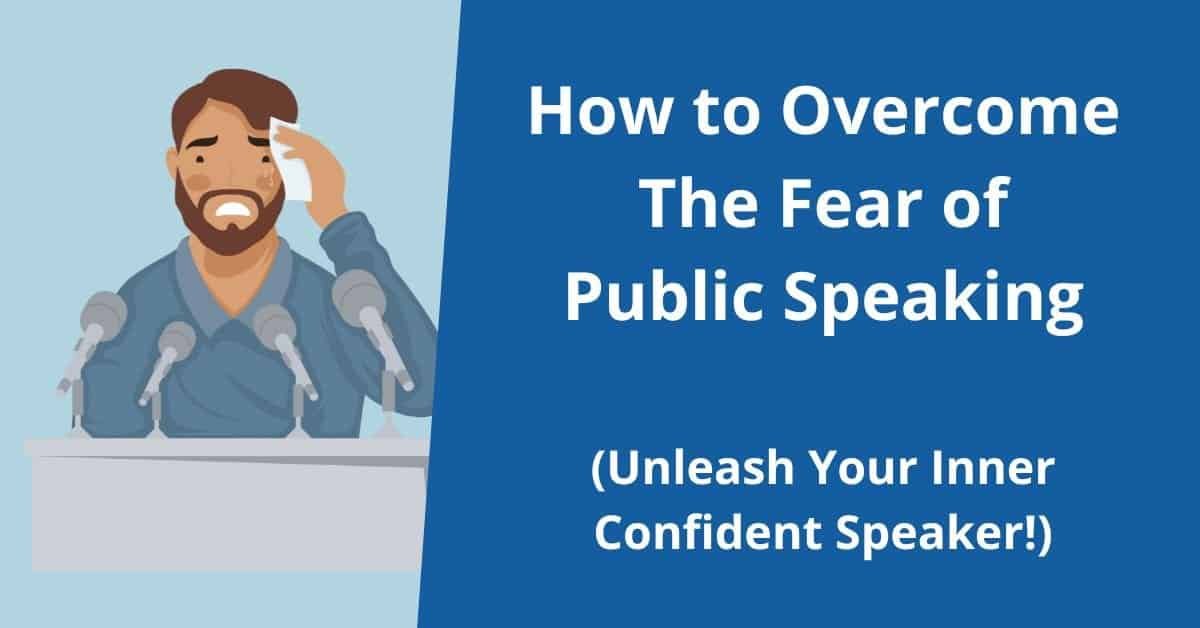How To Speak Publicly Without Fear

Imagine standing on a stage, bathed in the warm glow of spotlights, a sea of expectant faces before you. Your heart pounds, your palms sweat, and that familiar knot of anxiety tightens in your stomach. The microphone feels like a lead weight in your hand. This scenario, terrifying for many, is the reality of public speaking.
But what if you could transform that fear into confident communication? What if you could command a room not with trepidation, but with genuine enthusiasm and poise? This article explores practical, actionable strategies to overcome the fear of public speaking, empowering you to connect with your audience and deliver your message with confidence.
Understanding the Roots of Fear
The fear of public speaking, also known as glossophobia, is incredibly common. According to the National Institute of Mental Health (NIMH), it affects as many as 73% of the population. This isn’t simply stage fright; it's often a deep-seated anxiety rooted in evolutionary responses.
Our brains are wired to protect us. In prehistoric times, being ostracized from the group could mean certain death. Today, public speaking can trigger that same primal fear of judgment and rejection.
Reframing Your Perspective
The first step in conquering this fear is to reframe your perspective. Instead of viewing public speaking as a performance to be judged, see it as an opportunity to connect with your audience and share valuable information. Focus on the message you want to convey, not on your own anxieties. Shifting the focus outward can significantly reduce self-consciousness.
Preparation is Key
Thorough preparation is arguably the most powerful tool in your arsenal. Knowing your material inside and out reduces anxiety and allows you to speak more naturally. Begin by researching your topic extensively. Create a clear and concise outline that highlights your key points.
Practice, practice, practice! Rehearse your speech multiple times, ideally in front of a mirror or even better, a small, trusted audience. Record yourself and analyze your delivery, paying attention to your pace, tone, and body language. The more comfortable you are with the material, the less daunting the prospect of speaking in public will become.
Consider this advice from Dale Carnegie, author of "How to Win Friends and Influence People:"
"There are always two speeches: the one you practiced and the one you give."Embracing the possibility of slight deviations from your rehearsed script can actually enhance your authenticity.
Mastering Your Body Language
Nonverbal communication plays a crucial role in public speaking. Maintain eye contact with different members of the audience to establish a connection. Use natural and purposeful gestures to emphasize your points and keep your audience engaged.
Avoid fidgeting or pacing nervously. Stand tall with good posture to project confidence, even if you don't feel entirely confident inside. A smile can also go a a long way.
Breathing and Relaxation Techniques
Anxiety often manifests physically through rapid breathing and a racing heart. Practicing breathing and relaxation techniques can help calm your nerves before and during your speech. Try deep, diaphragmatic breathing exercises. Inhale deeply through your nose, filling your abdomen with air, and exhale slowly through your mouth.
Visualizing success can also be a powerful tool. Before your speech, close your eyes and imagine yourself delivering a confident and engaging presentation. Focus on the positive feelings associated with success, such as pride and accomplishment.
Embracing Imperfection
It's important to accept that you're not going to be perfect, and that's okay. Everyone makes mistakes, even experienced public speakers. If you stumble over a word or lose your train of thought, don't panic. Take a deep breath, acknowledge the mistake with a brief apology or a touch of humor, and move on.
The audience is generally more forgiving than you might think. Most people are rooting for you to succeed, and a little vulnerability can actually make you more relatable and likeable.
The Journey to Confidence
Overcoming the fear of public speaking is a journey, not a destination. It requires consistent effort, patience, and a willingness to step outside your comfort zone. Start small by practicing in low-stakes situations, such as speaking up in meetings or presenting to a small group of friends or colleagues.
Seek out opportunities to practice and improve your skills. Consider joining a public speaking club like Toastmasters International, which provides a supportive and encouraging environment for developing your communication abilities.
Each time you speak in public, you'll gain more confidence and resilience. Remember that even the most seasoned speakers were once beginners. By embracing the challenge and practicing these strategies, you can transform your fear into a powerful asset and unlock your full potential as a communicator.


















